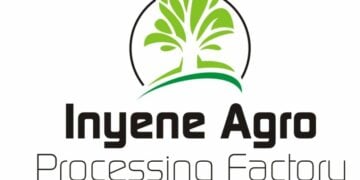More consumers in Nigeria are turning to bank loans to survive the impact of the persistent rise in inflationary pressure on the prices of goods and services in the country.
The demand for loans has risen to the highest in nearly four years in August largely on the back of rising inflationary pressures.
Latest data from the Central Bank of Nigeria (CBN) show that consumer credit rose by 16.9 per cent to N2.99 trillion in August from N2.56 trillion in the previous month. It also rose year-on-year by 23.1 per cent from N2.43 trillion in August last year.
“The rise in consumer credits could be attributed to increased demand for credit facilities by economic agents,” the CBN said in the report.
A breakdown of data shows that personal loans recorded the highest share of 75.4 per cent, while the share of retail loans stood at 24.6 per cent.
“When inflation is rising but growth in income or economic activities is abysmal, one should expect this kind of trend where consumers would resort to credits to cover the shortfalls in a bid to meet their essential consumption,” Temitope Omosuyi, investment strategy manager at Afrinvest Limited, said.
He added that the tough business environment dealt a huge blow to the job market, making more people either unemployed or not able to negotiate for a higher wage to match the rising price level
“The National Bureau of Statistics (NBS) reported that food accounts for more than 50 per cent of total household expenditure. Sadly, rising food prices are the major pressure point. Hence, the binge on credit for survival,” he said.
A senior lecturer at Baze University, Okafor Tochukwu, told BusinessDay that many households were under pressure as the budgets they initially had were not able to meet the economic requirements of their daily lives, making them start taking personal credit to meet their obligations.
“Unfortunately, in an era where there is inflation and consistent consumption, inflation is bound to continue increasing,” he added.
Inflation, which serves as a measure of consumer prices, has more than doubled over the last eight years, worsening the living conditions of cash-strapped consumers in Africa’s biggest economy.
The Tinubu administration’s reforms including the removal of petrol subsidy and naira devaluation, implemented in the second quarter of the year, pushed the inflation rate to the highest level in 18 years.
According to the NBS, the average retail price paid by consumers for petrol in May was N238.1, but increased by 172.5 per cent to N648.9 in November. The average retail price of diesel also rose from N844.28 per litre to N1,055.6 per litre.
The increase in the cost of petrol pushed up the average fare paid by commuters for bus journeys within the city per drop to N1,047.6 in November from N649.6 in May.
The naira depreciated from 416.52/$1 as of February 28, 2022 to N854.61/$ on December 20 at the official market. At the parallel market, popularly called the black market, the dollar was quoted to N1,225 from N575.
“Unfortunately, the inflation pressures persisted after the removal of fuel subsidy and the liberalisation of the foreign exchange market as the cost of household items, transportation, and housing continues to be on the rise,” Nuale Graham, a Lagos-based investment analyst, said.
She noted that due to these pressures, people are forced to look for alternatives to meet their essential requirements. “Thus, individuals and households have started taking up credit to help cushion the impact of rising costs and mitigate against their dwindling purchasing power.”
The headline inflation rate rose to 28.20 percent in November, the same as in August 2005, from 27.33 per cent in October, according to NBS.
Food inflation rate, which constitutes more than 50 per cent of headline inflation, was 32.84 per cent in November, compared to 24.13 per cent a year earlier.
A recent report by SBM intelligence, titled ‘Living Dangerously on Credit’, said Nigerians spend 97 percent of their monthly income on food.
“A situation where people spend more than their monthly income on food may signal that they have resorted to credit or taken on more work to feed their families,” the report said.
It added that deposit money banks and microfinance banks (including loan apps) were the major lines of credit for respondents, which signals that Nigerians have adopted these institutions as their lifeline when they hit hard times.
The World Bank revealed in its latest Nigeria Development Update report that rising inflation increased the number of poor people to 104 million in 2023 from 89.8 million at the start of the year.
This implies that an additional 14.2 million people fell into poverty from January to November 2023.
“The impact of this inflation is especially hard on the poor and vulnerable. The government has initiated targeted cash transfers to mitigate some of the impact on the most vulnerable households,” the report said.
The World Bank said a holistic approach to reducing inflation, including through tighter fiscal and monetary policies is also needed.
Omosuyi of Afrinvest Limited noted that the rising consumer credit will continue if Nigeria’s economy doesn’t turn the corner on inflation and employment.
“Meanwhile, credit providers must pay attention to defaults, as rising credit amidst a poor macro environment will certainly lead to a high delinquency rate.”





